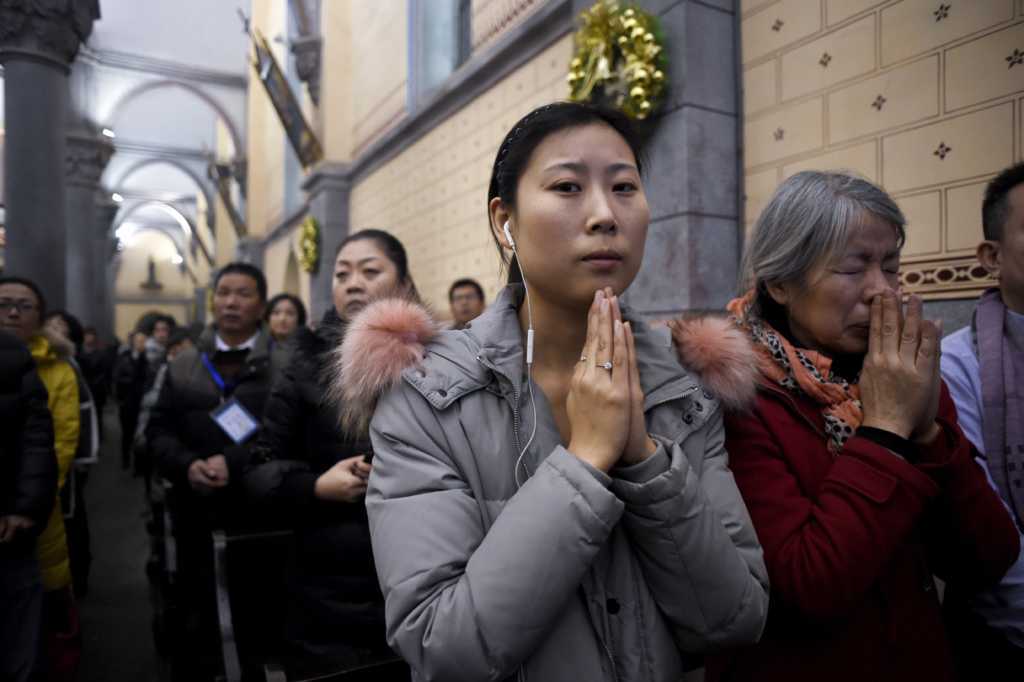When Anglo-Scottish Congregationalist Robert Morrison became the first Protestant missionary to set foot on Chinese soil, he had no idea how difficult it his work would be. Chinese society was hardwired in the piety and ritual of Confucianism, and therefore extraordinarily difficult to evangelize. Due to cultural customs, the male preachers had very little contact with the Chinese women, and struggled to reach them with the good news.
Female missionaries did their best, but progress was slow and frustrating. So, the missionaries thought up inventive ways of spreading the gospel message, such as recruiting local Chinese women, named “Bible women,” to evangelize the female community.
Writing for Christianity Today, Alexander Chow describes how this extraordinary group of women was formed:
“The earliest Bible women were often recruited from the employees of missionary households or from the wives and the mothers of Chinese male evangelists. Some were educated but many were illiterate. Due to the Protestant priority of the Bible, women missionaries needed to teach them to read Chinese—often through a Romanized form of Chinese characters—before they could read the Bible for themselves and communicate basic Christian teachings.”
As time progressed, many of these female missionaries were involved in setting up Christian boarding schools to educate Chinese girls.
“As Chinese society had long prioritized literacy and education for men, the missionaries’ desires for everyone to have the ability to read the Bible opened new vistas for these Chinese women,” Chow notes.
As they grew in confidence and ability, many of these “Bible women” began visiting the sick and caring for the poor, with some going on to openly evangelize the population and even hosting co-ed Bible groups.
One the most well-known “Bible women” was Dora Yu (Yu Cidu; 1873–1931).
“The daughter of a Chinese Presbyterian preacher, Yu studied medicine at Suzhou Women’s Medical School,” Chow writes. “In addition to her healthcare work, she also served as an itinerant preacher. In 1897, she accompanied American Josephine P. Campbell as a missionary to Korea, practicing medicine and preaching the gospel to Korean women.”
“When she returned to China six years later, she eventually gave up medicine to devote her attention to revival preaching. At one revival meeting, she converted a woman named Peace Lin (Lin Heping) and, in a later meeting, converted Lin’s son, the young Watchman Nee (Ni Tuosheng)—both of whom became evangelists themselves. Yu continued to lead revival meetings throughout China and was invited to be the main speaker at the Keswick Convention, an annual British evangelistic conference, in 1927.”
What is abundantly clear is that the Lord has worked wonders through women, both foreign and native, to advance the gospel in communist China, despite fierce and continued persecution. Just last year, a Christian woman was sentenced to three years in prison for simply holding a Bible study. Ma Huichao was taken into custody in January 2017 after she and three others met to study the Bible together without attaining prior government approval. According to China Aid, her lawyer was forbidden from pleading not guilty to the charges.
Despite such disheartening setbacks, the gospel continues to advance. Through the dedication and zeal of the early foreign missionaries, the pioneering work of the “Bible women,” and the commitment of the rapidly expanding native Christian community, China continues to experience something of a revival. According to the Council on Foreign Relations, there are is estimated to be between 93 and 115 million Protestants living in the nation today.
Pray the good news will continue to spread!
(H/T: Christianity Today)



